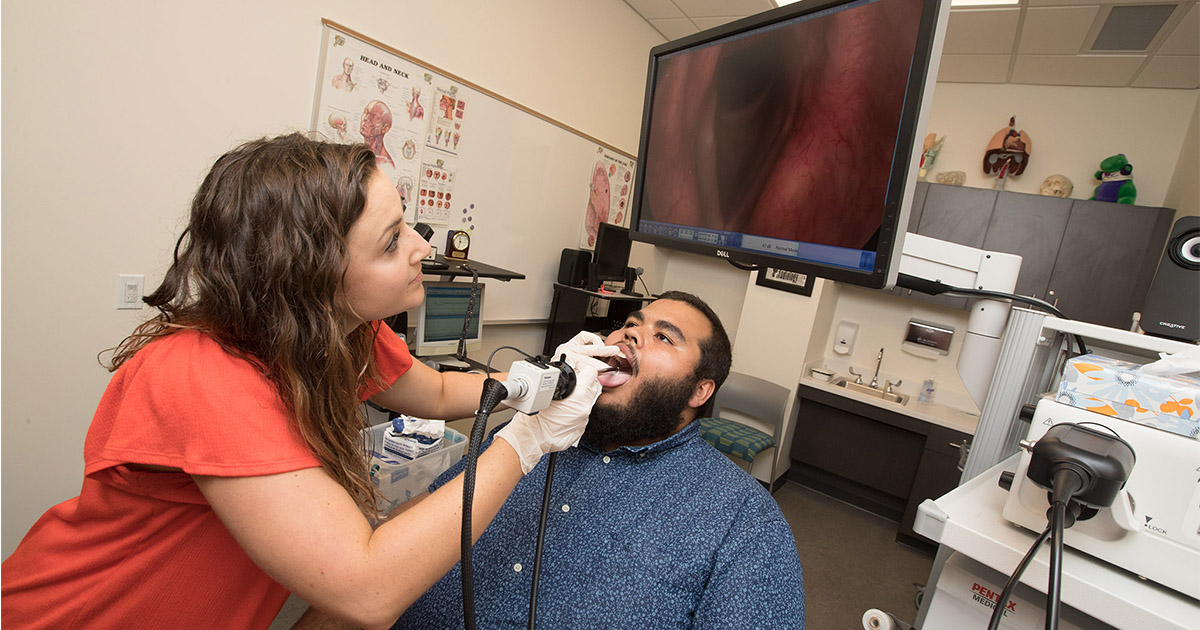Common Issues a Speech Pathologist Can Help Resolve Quickly
Common Issues a Speech Pathologist Can Help Resolve Quickly
Blog Article
Exactly How a Speech Pathologist Can Assist Improve Communication Skills
Efficient communication is a foundation of expert and personal success, yet numerous individuals deal with challenges that hinder their ability to express themselves clearly. A speech pathologist is equipped to address these obstacles with targeted evaluation and intervention strategies tailored to each individual's demands. By utilizing evidence-based therapeutic methods, they not just work to enhance speech and language disorders however also improve overall communicative skills. Understanding the diverse role of a speech pathologist reveals how their know-how can change lives, inviting a more detailed exam of the particular methods and results linked with their method.
Understanding Communication Problems
Understanding communication conditions is important for recognizing just how they affect individuals' capability to share themselves and engage with others. Interaction problems include a wide variety of troubles that influence speech, language, and social interaction, usually impeding reliable interaction. These problems can occur from various variables, consisting of neurological conditions, developmental hold-ups, physical disabilities, or psychological problems.
Speech conditions may manifest as troubles in voice, fluency, or expression production, influencing exactly how words are pronounced or spoken. Language problems, on the other hand, include difficulties in understanding or using language, which can impede both non-verbal and verbal communication. Social interaction conditions are characterized by difficulties in the pragmatic aspects of communication, such as taking turns in discussion or understanding social cues.
The repercussions of interaction problems are profound, impacting not only the individual's capacity to communicate emotions and thoughts yet additionally their social connections, academic opportunities, and total high quality of life. Understanding of these conditions can promote compassion and support, urging effective methods for interaction and engagement. Recognizing the intricacies of interaction problems is a crucial action in the direction of promoting inclusivity and resolving the needs of those affected.
Duty of a Speech Pathologist
Speech pathologists frequently play an important duty in treating and diagnosing interaction conditions, utilizing a series of evidence-based techniques tailored to each person's needs. These specialists collaborate with people throughout the lifespan, from children with speech hold-ups to grownups recovering from strokes or terrible brain injuries. Their proficiency encompasses a selection of communication issues, consisting of articulation, fluency, language, and voice problems.
In restorative setups, speech pathologists use organized interventions developed to boost interaction skills. They may implement approaches such as speech workouts, language games, and social communication training to promote enhancements in responsive and meaningful language capacities. Speech Pathologist. Additionally, they inform clients and their households concerning reliable communication methods and flexible approaches to navigate daily communications
Beyond direct treatment, speech pathologists team up with various other health care educators, caregivers, and specialists to guarantee a thorough strategy to treatment. They advocate for customers by giving resources and support, making it possible for people to achieve their interaction goals and improve their overall high quality of life. As experts in the area, speech pathologists are essential in cultivating effective communication, promoting independence, and improving social engagement for those with interaction obstacles.
Analysis and Diagnosis Refine
The analysis and medical diagnosis process carried out by speech pathologists generally involves a detailed examination to identify interaction disorders accurately. This procedure starts with a comprehensive case history, where the clinician collects pertinent information concerning the individual's clinical, instructional, and developmental background. Recognizing the context of the person's interaction difficulties is important for an accurate diagnosis.
Adhering to the case background, speech pathologists use informal analyses and standardized tests to examine numerous aspects of communication, consisting of speech sound manufacturing, language understanding, meaningful language, and social interaction skills. These evaluations are tailored to the individual's age and specific worries, giving valuable information for analysis.
Monitoring is also a critical element of the evaluation process, as it permits the clinician to see firsthand how the specific communicates in all-natural setups. In addition, interviews with member of the family and teachers can offer understanding right into the click for source person's communication difficulties throughout various atmospheres.
When the analysis is full, the speech pathologist synthesizes the findings to figure out a diagnosis and suggest suitable treatments. This detailed evaluation procedure guarantees that people receive targeted support tailored to their distinct communication demands, laying the foundation for efficient healing approaches.
Therapeutic Methods and Approaches
Countless healing techniques and methods are used by speech pathologists to deal with a range of communication conditions efficiently. One extensively used method is expression therapy, which focuses on fixing speech appears via rep and visual cues. This technique is specifically beneficial for people with speech sound disorders.
Another efficient approach is language treatment, which improves both meaningful and receptive language abilities. This might entail interactive activities that promote vocabulary development, syntax understanding, and conversational skills. Additionally, speech pathologists typically make use of social skills educating to enhance practical language capabilities, enabling people to navigate social interactions a lot more efficiently.
Fluency shaping and stuttering adjustment methods are particularly developed to aid those experiencing fluency problems. These approaches aid clients establish smoother speech patterns and take care of the physical and psychological parts of stuttering.
Moreover, augmentative and different interaction (AAC) systems are used for individuals with extreme interaction disabilities. These systems, which can consist of gestures, symbols, or digital tools, give necessary support for reliable interaction.
Benefits of Speech Treatment

In addition, speech therapy can aid in creating vital listening and understanding abilities, cultivating much better communication in discussions. Individuals with cognitive-communication problems can also benefit, as treatment concentrates on reinforcing memory and analytical abilities, crucial for effective communication.
One more essential facet is the psychological assistance given throughout treatment sessions. Speech pathologists produce a risk-free environment, motivating individuals to overcome stress and anxiety and aggravation pertaining to their interaction issues. This support can bring about improved self-worth and general mental health.
Additionally, early treatment through speech therapy can prevent further complications, making certain that individuals reach their complete communicative capacity. Overall, the benefits of speech treatment prolong past mere speech enhancement, positively affecting numerous dimensions of life for those influenced by communication problems.
Conclusion
In summary, speech pathologists play an important role in addressing interaction problems via analysis, diagnosis, and customized therapeutic interventions. By utilizing evidence-based strategies, these experts enhance people' speech and language blog here capabilities, promoting enhanced clarity, fluency, and social communication abilities. The benefits of early intervention emphasize the importance of looking for assistance from speech pathologists, as their know-how can dramatically boost communicative capacity, ultimately bring about better success in both personal and professional balls.

Speech pathologists often play an important role in identifying and treating interaction disorders, employing a range of evidence-based methods tailored to each person's needs. As specialists in the area, speech pathologists are essential in promoting efficient interaction, advertising independence, and improving social participation for those with communication challenges.

Report this page